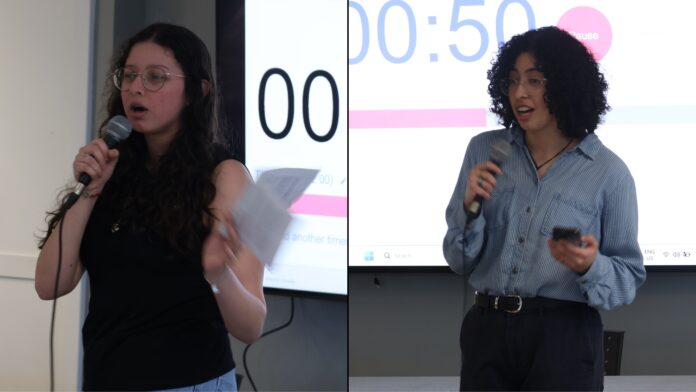
With student leadership on the line, the 2025-2026 election campaign for St. Thomas University’s Student Union (STUSU) is in full swing as candidates took the stage for the annual ‘Great Debate’ event on Feb. 26.
Two executive team positions, president and vice-president of administration, are being campaigned uncontested by Ana Lucía Pavón and Alejandra Baca respectively.
Pavón, STUSU’s current vice president of education, said that she was relieved to see her name alone on the ballot. She hopes this is something that will change next year.
“I was happy beyond comparison … I was so, so stressed out to campaign again,” she said. “I’m looking forward to making this way more visible … I want the positions for president and VPs to be fully contested next year.”
Despite running uncontested, both positions are still voted on by students to confirm the position. Students will be prompted with ‘yes’ or ‘no’ on their ballot.
Related: STUSU general election’s highlights main candidates’ concerns
Other positions that held debates at the annual event were vice-president of student life, vice-president of education and the international student representative.
President
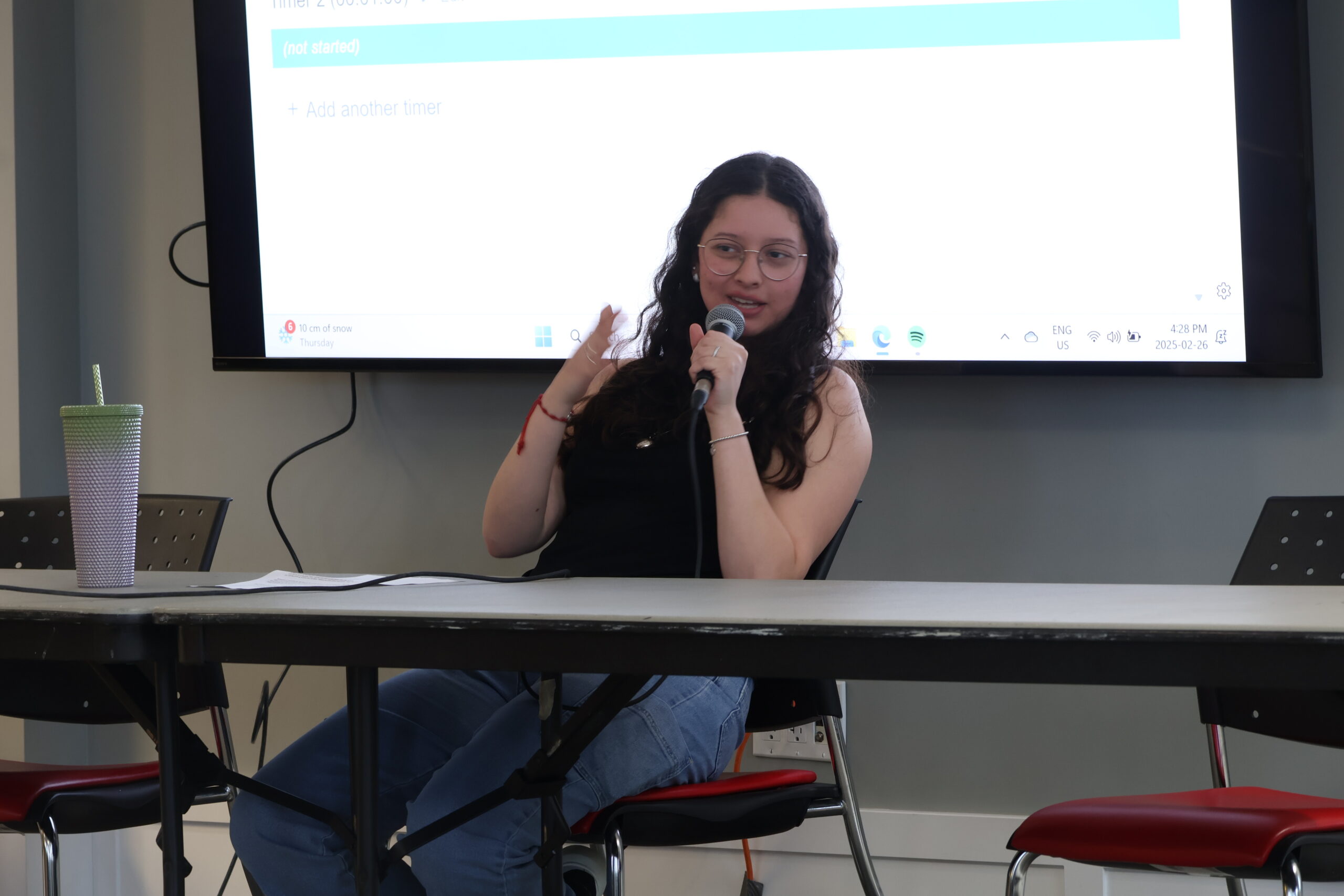
Pavón said that she would like to continue to build on the foundation set by the current administration in a self-defined ‘building year’ for the union.
She noted that she wanted to build a STUSU that is “very easy to approach.”
“I want to head on into attacking any issues that we have. I would try my best to increase the visibility of the union so that people are aware of the services we have and how we can help them,” she said.
According to Pavón, the success of her potential administration will come from the team that is behind her.
“I will rely on my team and my people … it’s not a one-person job,” said Pavón.
She said that her history in the union will help her get through difficult financial situations and navigate student conflicts that may arise during her term.
Vice-President of Administration
Baca said that she ran for the role due to her skill set.
“I am more attracted towards the administration side of things,” she said. “I’m really good at it.”
She wants to run the financial aspects of the union “as smoothly as possible” in order to provide students what they need.
“I am looking to monitor the budget very, very closely and consistently to make sure that there are no expenses that there shouldn’t be, making sure that we are still allocating enough funds to accomplish the things we want to accomplish and give to students,” said Baca.
Baca wants to ensure that the relationship between students and the union remains strong by communicating with students about what they need and what the union can do better.
“I am going to succeed in this role because I am very organized, I am very efficient with my job and because I am very dedicated to working with whoever I need to to get the job done.”
Vice-President of Student Life
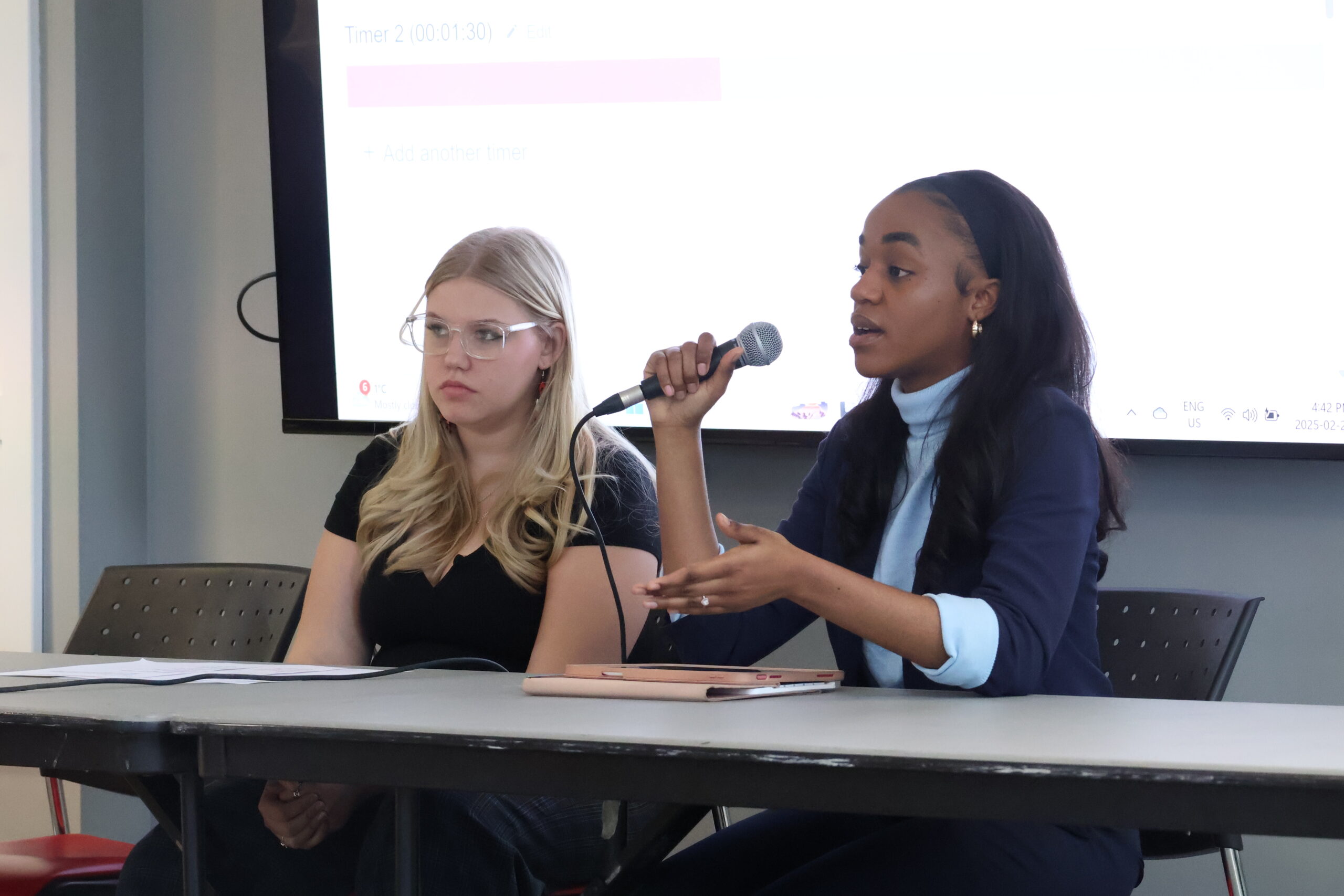
Kyra Lustig and Sochane Campbell debated for the position of VP of student life.
Lustig said that, if elected, her plan would consist of five primary pillars. These consist of student engagement, mental health and wellness, sustainability, community and reconciliation.
She added that her previous experience as a reconciliation committee member has given her “a lot of insight into the diverse needs of our student body.”
Campbell believes that her previous work, building communities, creating inclusive events and advocating for students as the president of the Black Student Alliance, lends well to the role.
She said that her focus would be on student engagement, connecting students both on and off campus. She added that she hopes to expand mental health advocacy and improve STU’s campus by making events “more accessible, inclusive and student driven.”
Lustig said she would hold regular “town halls” with the student body, student union and STU administration to help discover what students need as well as give them the ability to give her anonymous suggestions on things they would like to see implemented.
This would include coffee and chat sessions, according to Lustig, where students can sit down and discuss things with her throughout the academic year.
Collaborating with STU administration on student needs is a priority for Campbell, who said that she would like to introduce workshops where students can learn how to voice their concerns and introduce a mental health wellness zone where students can learn about their mental health.
Both candidates said that they would like to help clubs and societies have more outreach to students, which they would help foster through increased publicity and advertising around campus.
Vice-President of Education
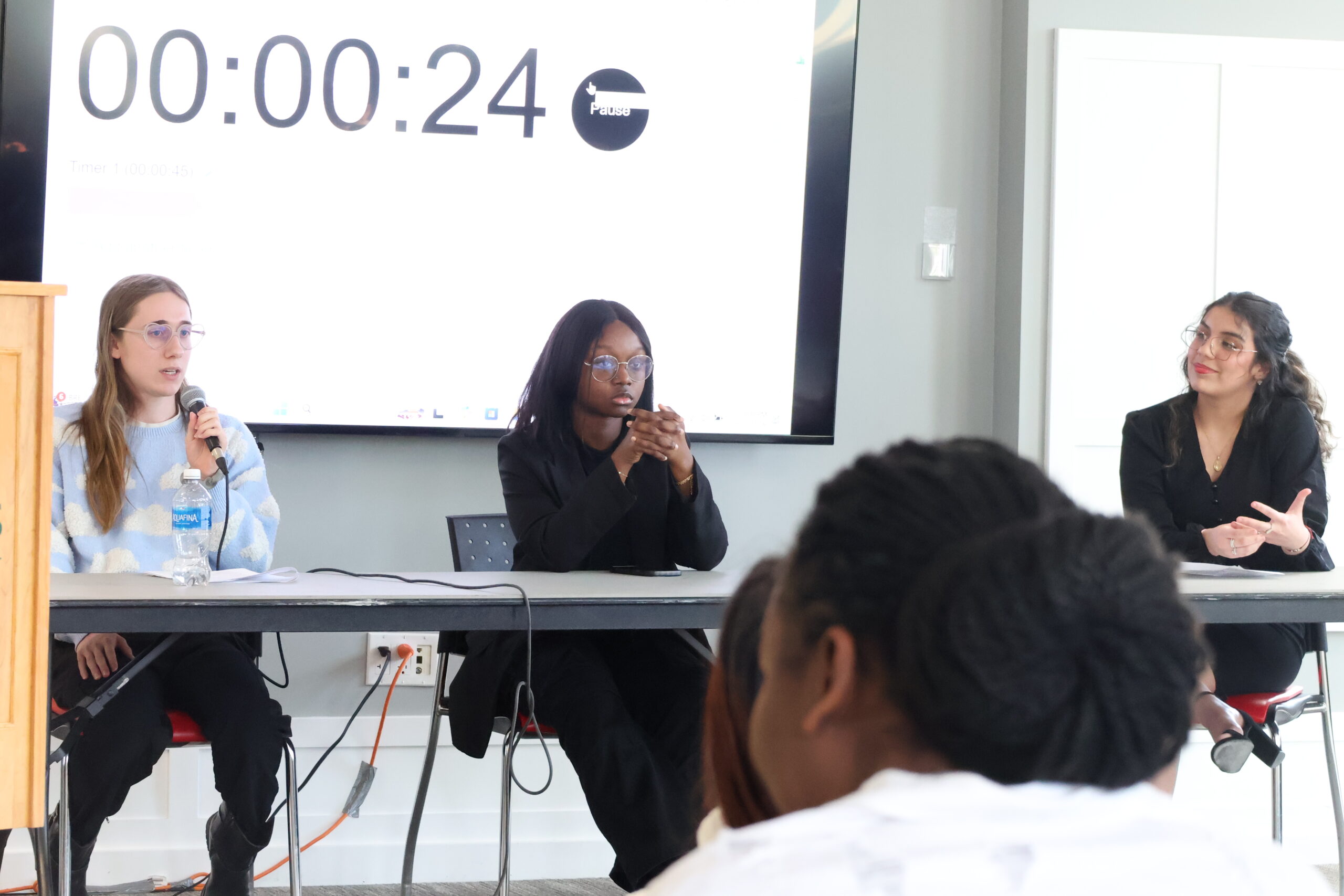
There are three candidates for the VP of Education: Alec Pinch, Princess Obot and Camila Baquerizo.
Pinch reiterated the importance of inclusivity and accessibility in her campaign, saying that she will “put her all into everything” she does.
Obot believes that every student “has a voice and needs to be heard,” regardless of their background and previous experiences.
According to Baquerizo, students deserve to be a part of a community, have better mental health support and have “better academic resources” available to them. She said she wants to make students’ lives “way easier.”
They all agreed that they would try to tackle some of the financial burdens that students face by reaching out to external sponsors to help finance emergency bursaries for students.
Obot mentioned that she would push to introduce platforms where students could trade, buy and rent necessary resources for a cheaper price. Baquerizo said that she would try to promote resources available to students through clubs and societies and Pinch would like to come up with unique initiatives to help students with specific financial issues.
International Representative
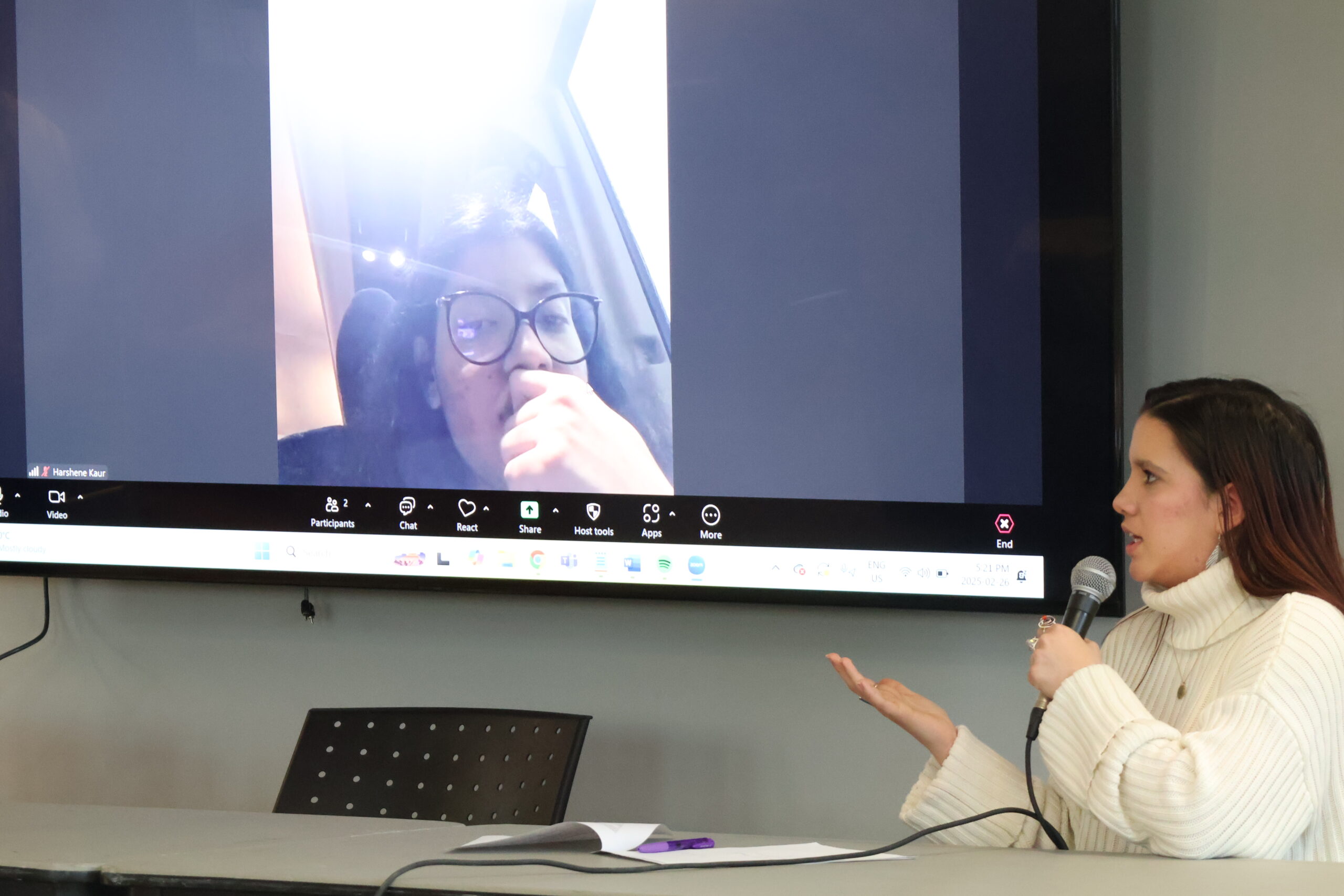
Two candidates debated for the position of International Student Representative: Harshene Kaur and Ana Laura Rodriguez.
Rodriguez said that she would work to ensure more advocacy, improve resources and strengthen community support for international students.
Kaur advocated for cultural training for on-campus counsellors to better support the needs of students from all cultural backgrounds, as well as an increase in accessibility to scholarships and bursaries for international students.
In response, Rodriguez said that she would strive to look for off-campus resources and funding to help international students financially.
They both agreed that they would try to create ways to better inform international students on the housing and rental climate in Fredericton to better prepare them for off-campus residency.
The debate was the last campaigning event for the general election. The voting period will begin on March 11 at 8 a.m. and close at 6 p.m on March 12.
